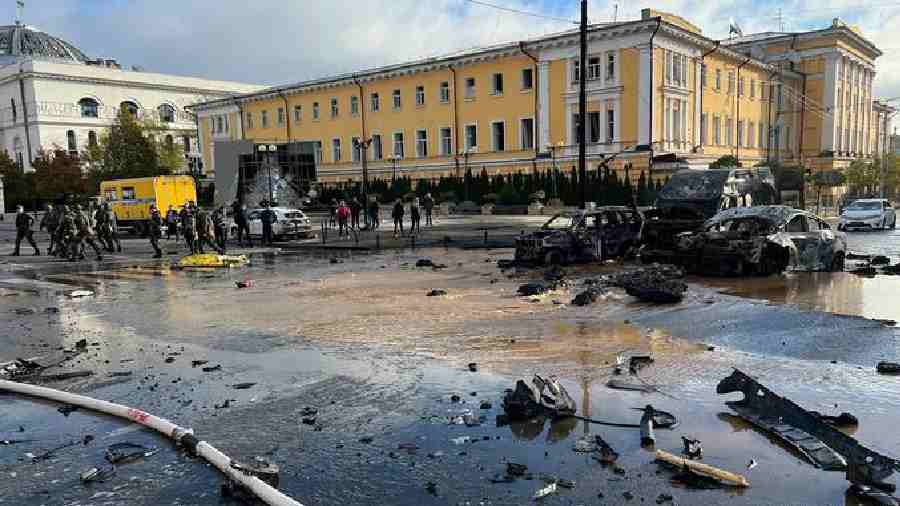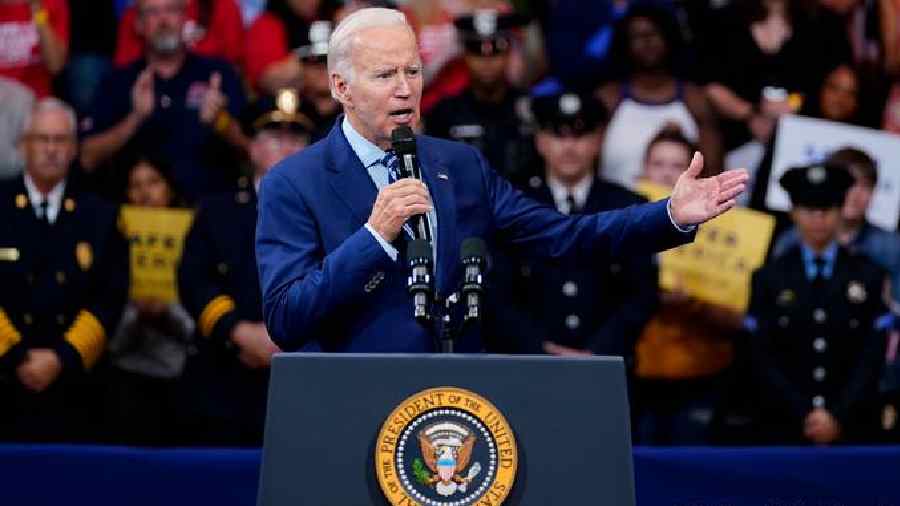Leaders of the Group of Seven (G7) nations are due to hold a virtual meeting on Tuesday with Ukrainian President Volodymyr Zelenskyy.
The urgent meeting comes a day after more than 80 Russian missiles rocked Ukrainian cities and struck the center of Kyiv for the first time in months.
The attacks left at least 19 dead and 105 injured, according to Ukrainian officials.
German Chancellor Olaf Scholz said Zelenskyy could count on the "solidarity of Germany and the other G7 states," and agreed on holding the emergency G7 meeting after the two leaders spoke Monday.
Germany currently holds the G7's rotating presidency.
French President Emmanuel Macron on Monday said the Russian strikes indicated "a profound change in the nature of this war."
The White House said US President Joe Biden had spoken with Zelenskyy and promised to send advanced air defense systems to Ukraine. Germany has also said it would deliver the first of four air defense systems.
Here's more news concerning Russia's war on Ukraine from Tuesday, October 11:
Air raid warnings issued across Ukraine
Ukraine's emergency services put the entire country on alert Tuesday, warning of a "high probability of missile strikes."
"Please remain in shelters for your own safety, do not ignore air raid signals," it said on the Telegram messaging app.
DW correspondent Fanny Facsar in Kyiv said Ukrainian authorities sent an air raid alert warning people to take shelter Tuesday morning as more missile strikes are expected.
"People are trying to come up with a plan of what to do, as things have become quite uncertain here in the capital," she said.
After Kyiv was hit by missile fire for the first time in months yesterday, "people take these air raid alerts more seriously than they did in the past," she added. "This makes me recall the early days of the war."
OSCE condemns Russian missile strikes as 'terror'
The Organization for Security and Co-operation in Europe (OSCE) said Russian missile strikes on major Ukrainian cities amounted to "terror" that violates international law.
"These heinous military actions represent a total disrespect and breach of international law, including humanitarian law," a statement by OSCE leaders said.
"The only reason behind these brutal and cruel acts is to spread terror and to compensate for failures in achieving tactical and strategic goals," it said.
Russia is one of the 57 member states of the organization.
The OSCE had for years monitored a cease-fire between Kyiv and pro-Russian separatists in eastern Ukraine. OSCE monitors withdrew after Russia's invasion in February.
UN rejects Russian call for secret vote
The United Nations General Assembly rejected Moscow's call for a secret ballot vote of a draft resolution condemning Russia's annexation of four Ukrainian regions.
Of 193 members,107 voted against a secret ballot on a draft resolution. Thirteen countries voted in favor of Russia's motion while 39 abstained.
Moscow had argued that Western lobbying made it so that "it may be very difficult if positions are expressed publicly."
Russian strikes could cause 'displacements' — UN refugee agency
UN High Commissioner for Refugees Filippo Grandi warned that more people could be forced to leave their homes following a wave of Russian strikes on a number of major Ukrainian cities.
"The horror of what happened in Ukraine today ... is inexcusable," Grandi said.
"The bombing of civilians, of houses, ... of non-military infrastructure in an indiscriminate manner in many cities across Ukraine means the war is becoming harder and more difficult for civilians," he said.
He added that he feared the strikes could "provoke more displacements" in Ukraine. The UN refugee chief said that he expected most to qualify as internally displaced in Ukraine.
Grandi said that the situation in Ukraine was "very fluid," as many refugees try to return home after fleeing. He said that displacements could last longer in places that saw substantial destruction or where residents don't have access to heat or food.











